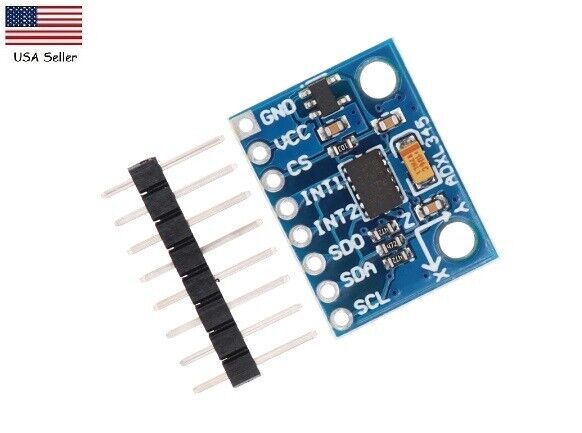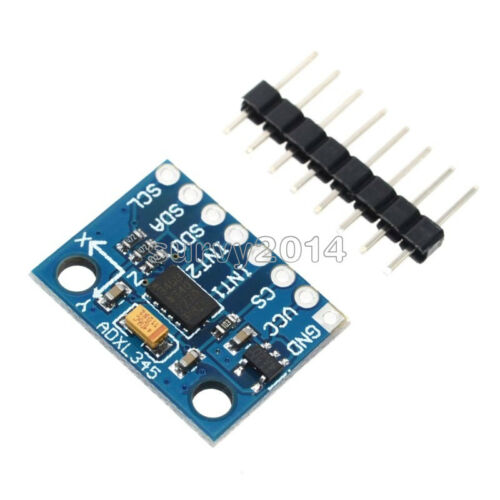-40%
GY-291 ADXL345 3-Axis Digital Gravity Sensor Acceleration Module IIC/SPI
$ 7.28
- Description
- Size Guide
Description
GY-291 ADXL345 3-Axis Digital Gravity Sensor Acceleration Module IIC/SPI.ADXL345 is a small, thin, low-power three-axis accelerometer can be high
Up to ± 16 g accelerometer with high resolution (13) measurements. Digital Outputs
According to a 16-bit twos complement format, can be accessed through the digital interface SPI (3-wire or 4-wire) or I2C.
ADXL345 is well suited for mobile device applications. It can tilt sensing applications
Measuring the static acceleration of gravity, it can also measure the dynamic add motion or shock caused
speed. Its high resolution (4 mg / LSB), capable of measuring about 0.25 ° of inclination
Angle change. Use ADXL345 digital output acceleration timing, etc., without the need for
Analog to digital conversion, reducing system cost and board space. In addition, ADXL345 is a small, thin, ultra-low power 3-axis accelerometer with high resolution (13-bit) measurement at up to ± 16g. Digital output data is 16-bit twos complement format, can be accessed via I2C digital interface SPI (3-wire or 4-wire) or.
ADXL345 is well suited for mobile device applications. It can tilt sensing applications
Measures the static acceleration of gravity, you can measure motion or shock resulting from moving
State acceleration. Its high resolution (3.9mg / LSB), capable of measuring less than 1.0 °
Tilt angle change.
The device offers a variety of special detection. Activity and inactivity sensing through
Comparing any axis acceleration threshold set by the user to detect the presence or absence of transport
Movable occurs. Tap any direction sensing detects single and dual vibration vibration
Make. Free-fall detection can detect whether the device is falling. These ones
Functions can be mapped to two interrupt output pins a. Shen is
Please patented integrated memory management system uses a 32 FIFO
(FIFO) buffer can be used to store data, which will host processor load
Minimize, and lower overall system power consumption.
Low power modes enable intelligent motion-based power management to a very low
Power consumption threshold sensing and active acceleration measurement.







